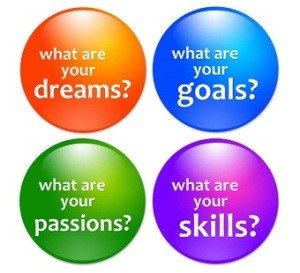COACHING OUR WAY THROUGH ANXIETY – WAYS TO HELP
 Perhaps you’ve seen the famous quote from Erma Bombeck: “Worry is like a rocking chair: it gives you something to do, but never gets you anywhere.” This has never been put to the test more than in the past year. So many of us are dealing with anxiety about the world right now. Add to it the stress of waiting for the COVID-19 vaccine for us and our loved ones and our thoughts can feel almost crippling. What steps can we take to lessen our burden and start to break the anxiety cycle?
Perhaps you’ve seen the famous quote from Erma Bombeck: “Worry is like a rocking chair: it gives you something to do, but never gets you anywhere.” This has never been put to the test more than in the past year. So many of us are dealing with anxiety about the world right now. Add to it the stress of waiting for the COVID-19 vaccine for us and our loved ones and our thoughts can feel almost crippling. What steps can we take to lessen our burden and start to break the anxiety cycle?
When we’re anxious, our brains start coming up with all kinds of ideas, many of which are unlikely to happen and unrealistic. That only builds on an already anxious state. Often, stepping back and challenging your thoughts can have a powerful outcome. Here are a few questions to ask yourself:
- What evidence do I have that my worry will come true?
- Do I have evidence that my fear is false?
- How will I handle it if my fear comes true?
- Does it benefit me to think this way?
- What are the costs of thinking this way?
- Is there anything I can learn from this situation and use in the future?
One of the worst things you can do when feeling anxious is to sit around and obsess about how you feel. We’ve all been doing a lot more of this since the pandemic began and thinking about worst-case scenarios. Break the cycle and focus your attention on a goal-directed activity and doing what needs to get done. Accomplishing a goal, no matter how small and “getting out of your head” often makes you feel better and more empowered.
When you’re feeling anxious, you might feel stuck and caught in a cycle of “what-ifs”. That’s where a coach can help by providing tools and techniques to manage anxiety effectively. Leah M Joppy and Associates is ready to share healthy ways to cope. Call us at 301-670-0051 or email leah@lmja.com.
Why Should I Work With A Coach?
We’re glad you asked! Below are 14 possible reasons why people work with a coach. Do you recognize yourself in one of these reasons?
- Coaches know how to help you get what you want.
- Coaches know how to help manage and prevent setbacks.
- You have decision fatigue.
- You need accountability.
- You have trouble following through with goals.
- Limiting beliefs have been holding you back.
- Anxiety and stress are recurring themes.
- You are unable to define a clear vision.
- Your finances, health, relationships, career or business is in complete disarray.
- The passion you once had for life is gone.
- You get easily distracted by time wasters.
- Your friends and family aren’t supporting your dreams.
- You’re completely lost and feel like all hope is gone.
- You simply do not know where to begin.
If any of the above sound familiar to you, maybe it’s time you thought about hiring a coach. We can help.
Find out more about the coaching process and how a coach can help you get off of the fence and actually accomplish those goals you’ve been carrying around for years! No matter your career level or station in life, together we can develop a successful coaching plan for you so you can begin to MOVE FORWARD!
Give us a call at 301-670-0051 or send an email to leah@lmja.com to schedule a 15 minute interest call.
And for more information on coaching, check out our articles below:
- Leadership Coaching: We’ve all had at least one job where it felt like leadership was lacking. You probably remember what it was like – a lack of communication, no clear expectations or defining of roles and difficulty handling conflict.
- Leadership Coaching #2: Football legend Vince Lombardi said that, “leaders are made, not born.” When it comes to effective leadership, we can all use a strategy that helps us hone our skills and bring out the best in our team. But figuring out how to do that can be a challenge and can feel overwhelming when you already have a lot of other responsibilities on your plate.
- Coaching For High Level Admin Staff: If you’re an executive assistant, does it feel like you make the impossible happen every single day? It’s a job that requires a lot of knowledge and flexibility, along with the ability to deal with all types of personalities.
- Coaching For Any Level: Wherever you stand in your job right now (entry level to executive), chances are you’re wondering what the future holds in the next year or five years and beyond. Do you feel like you’ve reached your full potential or do you feel like there’s something better for you out there?
- Life Coaching For Single Women: If you’re a single woman, it can sometimes feel like you’re part of a forgotten group. And if you’re a single woman of a certain age, it can feel like that times a thousand. Gone are the days where single women feel like they need to get married in order to feel fulfilled.
- Coaching To Expand Thinking: When most of us face a challenge, our typical response is to fall back on the old ‘tried and true’ way of doing things. This is usually what we’ve learned has worked for us in the past. However, Oliver Wendell Holmes may have put it best when he said, “Man’s mind, once stretched by a new idea, never regains its original dimensions.”
- Coaching For Self Reliance: What is your first memory of feeling truly self-reliant? Maybe it was the day you received your driver’s license and the possibilities that came with the feeling of independence. Perhaps it was when you became financially independent from your parents and started paying your own bills. Whatever the example that comes to mind, self-reliance is trusting your abilities to get through the challenges of life on the back of your own resourcefulness.
- Coaching For Personal Accomplishment: When we think about our life accomplishments, we often reflect on what we’ve achieved career-wise. We received the promotion and big raise, moved to the corner office or changed companies to move forward in our careers. But what about our personal accomplishments?
- Why Everyone Needs a Coach. What exactly does a life coach do and how can one help you with your own unique set of challenges? A life coach is someone who counsels clients on anything from career obstacles to personal struggles.
- Coaching For Mid-Level Managers. For mid-level managers, the juggling act of being both the boss and employee can lead to stress and burnout. Working with a coach can assist in so many ways.
What Is A Mindful Moment and Why Do We Need It Now?
 This article is an excerpt from our Mindfulness Webinar: If you weren’t able to join us for the webinar, here is a snippet taken from the discussion. Stay tuned for further topics.
This article is an excerpt from our Mindfulness Webinar: If you weren’t able to join us for the webinar, here is a snippet taken from the discussion. Stay tuned for further topics.
What Is A Mindful Moment and Why Do We Need It Now?
We live during uncertain times. Politically, culturally and economically, these are complex times that we have not experienced to this degree until now. Taking the time to pause, slow down and not overreact to any news or problem that crops up helps us both physically and mentally.
Try these 4 steps to practice your Mindful Moment.
- Pausing. When feeling a difficult emotion, or struggling in anyway, take a mindful pause.
- Breathing. Tune into your breath, allowing yourself to fully feel it. Two thoughts that can help with this are:
“What can I feel within my breath right now?”
“Where can I feel my breath most strongly?”
- Body. Tune into your body. Allow yourself to fully feel any sensations there. Ask yourself:
“What sensations can I feel in my body right now?”
“Where does my body feel tight / clenched / held?”
“Where does my body feel strong / grounded / steady?”
- Emotions. Name your emotion. “What am I feeling right now?”
For more information, please read our other articles on Mindfulness:
Is it time for some coaching? There are lots of reasons why people work with a coach. Take a look at this article on coaching and decide whether it’s time for you to reach out!
COACHING FOR ANY LEVEL
Wherever you stand in your job right now (entry level to executive), chances are you’re wondering what the future holds in the next year or five years and beyond. Do you feel like you’ve reached your full potential or do you feel like there’s something better for you out there? Is your career in alignment with your values? Do you really like going to your job everyday? Working with a coach provides an opportunity to achieve both short-term and long-term career goals, as well as improvement in other areas. Here’s how it work for all career levels:
Coaching for Entry Level Employees: Maybe the enthusiasm you had when you started on your career path is beginning to wane. You might be wondering if there’s potential in your career or if you’ve even chosen the right field in the first place. Working with a coach provides guidance and accountability, as well as tools and strategies to help you build a fulfilling career that excites you.
Coaching for Middle Management: This is often the time where you can feel stuck and wondering if you’ve made the right career decision. You’ve invested a fair number of years in your present career, so would it make sense to make any big leaps now? Is there potential for more and how can it be achieved? Coaching delves into these areas and provides clarity and motivation for change.
Coaching for Executives: Executives face a number of challenges that make coaching an effective component to unlock leadership potential and hone leadership skills. It not only maximizes an executive’s skill set, but it also helps him/her develop stronger work teams. Coaches also look at other areas like building emotional intelligence, learning impactful communication skills and establishing a work/home balance.
Whether you’re just getting started or have been at your job for years, working with a coach can benefit you at any level. Here are some reasons why people seek a coach. Leah M. Joppy and Associates is ready to help you at any stage of your career. Call us at 301-670-0051 or email us at leah@lmja.com.
LIFE COACHING FOR SINGLE WOMEN
 If you’re a single woman, it can sometimes feel like you’re part of a forgotten group. And if you’re a single woman of a certain age, it can feel like that times a thousand. Gone are the days where single women feel like they need to get married in order to feel fulfilled. Yet popular culture so often portrays them as lonely, unhappy and looking for a partner. The ways single women see themselves versus how they’re stereotyped in our culture are vastly different! So, what’s the real story?
If you’re a single woman, it can sometimes feel like you’re part of a forgotten group. And if you’re a single woman of a certain age, it can feel like that times a thousand. Gone are the days where single women feel like they need to get married in order to feel fulfilled. Yet popular culture so often portrays them as lonely, unhappy and looking for a partner. The ways single women see themselves versus how they’re stereotyped in our culture are vastly different! So, what’s the real story?
A 2018 study by creative marketing agency Hill Holliday and its market research company Origin sought to answer the question, “What do single women really want?” The answers offered a real life glimpse into their top priorities. Here’s a look:
- The number-one priority of single women was living on their own. Nearly half (44 percent) said it was what mattered most to them.
- Another top priority? Establishing a career. About one-third of single women (34 percent) listed their career over everything else.
- The third most popular priority among single women was financial security with 27 percent of respondents saying it mattered most to them.
The study states that, “on the whole, today’s single women have a strong sense of self and reject the outdated notion that they’re missing out on all that life has to offer.” More proof? Here’s a look at some of the characteristics single women most often use to describe people like them:
- Independent: 77%
- Confident: 54%
- Responsible: 49%
- Ambitious: 43%
- Strong-minded: 42%
- Adventurous: 32%
Perhaps as a single woman you see yourself in the characteristics listed above, but you’re feeling like you could use some assistance in reaching out and grabbing all of the opportunities in front of you. That’s where coaching comes in. Leah M Joppy and Associates can work with you to help identify your priorities, create a realistic action plan and set you on a course for living the life you’ve always wanted. Call us at 301-670-0051 or email leah@lmja.com to learn more.
And please take the time to read our article on the reasons why people seek out a coach.
Mindfulness During Uncertain Times
 With all of the uncertainty surrounding the COVID-19 pandemic, many of us are looking for ways to handle stress, stay focused and clear our minds a little. Between the constant stream of negative news, uncertainty and anxiety, it’s no wonder that our emotions are running the gamut right now. If you feel like you’re struggling to cope with it all, it may be the perfect time to learn a useful new skill: mindfulness.
With all of the uncertainty surrounding the COVID-19 pandemic, many of us are looking for ways to handle stress, stay focused and clear our minds a little. Between the constant stream of negative news, uncertainty and anxiety, it’s no wonder that our emotions are running the gamut right now. If you feel like you’re struggling to cope with it all, it may be the perfect time to learn a useful new skill: mindfulness.
You may have heard the term “mindfulness” thrown around, but what exactly is it and how can it help during times of crisis? Psychologist Jon Kabat-Zinn defines mindfulness as “paying attention in a particular way, on purpose, in the present moment and nonjudgmentally.” In short, to be mindful is to be purposeful about where you direct your attention. Instead of letting your thoughts run wild, you take a step back and become intentional about where you put your focus.
Mindfulness may sound simple, but it takes some getting used to if you’re new to the idea. As you practice moments of mindfulness on a regular basis, you will notice they come more naturally and easily to you. You’ll find it easier to take a few deep breaths and respond in a more patient and thoughtful way to a challenging person or situation. You’ll begin to slow down during particularly challenging parts of your day and not react to a problem hastily. You’ll be better able to focus. Best of all, you’ll become more aware of your thoughts in order to deal with the various stressors in your life.
So, how do you get started? Take a look at our next article on the basics of a mindfulness practice.
Basics Of A Mindfulness Practice
 Pay attention to activities you do everyday. This is a great starting point. Pick an activity you do everyday, like brushing your teeth or taking a shower. Then, get in the habit of truly paying attention to what you’re doing. When your mind starts to wander, bring your attention back to the feel of your toothbrush on your teeth, the sensation of washing your hair, etc.
Pay attention to activities you do everyday. This is a great starting point. Pick an activity you do everyday, like brushing your teeth or taking a shower. Then, get in the habit of truly paying attention to what you’re doing. When your mind starts to wander, bring your attention back to the feel of your toothbrush on your teeth, the sensation of washing your hair, etc.
Set aside some time and space. You don’t need a special mat or equipment, but you do need a peaceful, quiet area (if only for a few minutes!). You also need to allow yourself some time (again, if only for a few minutes!). Some people set a reminder on their phone to take breaks throughout the day.
Pay attention to your breathing. Breathing is a key mindfulness practice. It’s something we do naturally and it’s a good way to bring our awareness back to the present moment. Just taking three or four deep breaths while paying attention to them can help you calm down and improve focus.
Ground yourself physically. Sometimes concentrating on your breathing isn’t enough. In that case, concentrate on how the chair or floor feels under your body. Or put your hands on a table and notice how the surface feels. Other people enjoy running their fingers across an object like a stone. Any of these types of actions bring awareness of the present.
We are all dealing with different stressors due to the COVID-19 pandemic. For some, work responsibilities are greater right now and it’s difficult to juggle professional and personal duties. For others, work has slowed down or stopped and the anxiety of remaining productive and dealing with uncertainty can feel paralyzing. Research has shown that practicing mindfulness reduces activity in the part of your brain called the amygdala. The amygdala is central to switching on your stress response, so by practicing mindfulness, you’re reducing your background level of stress. And who doesn’t need a little of that right now?
Mindfulness takes practice, but the effort is well worth the reward! Leah M Joppy and Associates has been conducting webinars focusing on strategies we can all use to get through these challenging times. We can tailor a webinar that focuses on mindfulness practices, stress reduction and more. How can we help you? Call us at 301-670-0051 or email leah@lmja.com to learn more.
Coaching For Any Level
 Whether you’re starting out in your career or have spent years climbing the ladder, working with a coach provides an opportunity to achieve both short-term and long-term goals, as well as improvement in other areas. Wherever you stand in your job right now, chances are you’re wondering what the future holds in the next year or five years and beyond. Let’s start with a few questions that everyone should ask himself or herself, from entry level to executive:
Whether you’re starting out in your career or have spent years climbing the ladder, working with a coach provides an opportunity to achieve both short-term and long-term goals, as well as improvement in other areas. Wherever you stand in your job right now, chances are you’re wondering what the future holds in the next year or five years and beyond. Let’s start with a few questions that everyone should ask himself or herself, from entry level to executive:
- How do you feel about your career? Do you like going to work?
- Do you feel you’ve reached your full potential or do you feel like there’s something better for you out there?
- Is your career in alignment with your values?
- What areas do you feel could use improvement? Are there skill areas you’d like to learn and/or develop?
Maybe you feel like you’re too busy and just trying to deal with the day-to-day to really answer these questions. That’s where coaching can help. Here’s how:
Coaching for Entry Level Employees: You had such optimism and excitement starting out, but maybe that enthusiasm is starting to wane a bit. Your confidence might be a little tattered and you’re wondering if there’s potential in your career (or if you’ve even chosen the right field in the first place). Working with a coach provides guidance and accountability, as well as tools and strategies to help you build a fulfilling career that actually makes you excited to go to work!
Coaching for Middle Management: You’ve been working for a while and you’ve reached a management position. Now what? This is often the time where you can feel “stuck” and wondering if you’ve made the right career decision. You’ve invested a fair number of years in your present career, so would it make sense to make changes now? And what does the future hold? Is there potential for more and how can it be achieved? Coaching really delves into these areas and provides clarity and accountability for your future.
Coaching for Executives: Perhaps you’re thinking, “an executive has reached the pinnacle of his/her career. Why would coaching even be needed at this level?” Executives face a number of challenges that make coaching an effective and necessary component to unlock leadership potential. It not only maximizes an executive’s skill set, but it also develops a stronger team. Leadership is a skill that must be honed and working with a coach can help executives build a work environment that emphasizes employee trust and loyalty. And that’s just the beginning. There’s also building emotional intelligence, learning impactful communication and establishing a work/home balance, just to name a few.
Whether you’re just getting started or have been at it for years, working with a coach can benefit you at any level. Leah M. Joppy and Associates is ready to help you at any stage of your career. Call us at 301-670-0051 or email us at leah@lmja.com and let’s get started.
End Of Year Budget Needs – Popular Courses
 If you’re examining your EOY budget and have last minute money that needs to be spent, now is an ideal time to invest those dollars in your team. Think about both the victories and challenges that you’ve experienced so far this year. Is there a conflict that might have been resolved better? Are there areas that need improvement, like enhanced communication or trust? This month and next, we’re focusing on our most popular courses that have changed the way offices operate, communicate and deal with issues. They’re a great investment in the most important part of your department – your people:
If you’re examining your EOY budget and have last minute money that needs to be spent, now is an ideal time to invest those dollars in your team. Think about both the victories and challenges that you’ve experienced so far this year. Is there a conflict that might have been resolved better? Are there areas that need improvement, like enhanced communication or trust? This month and next, we’re focusing on our most popular courses that have changed the way offices operate, communicate and deal with issues. They’re a great investment in the most important part of your department – your people:
Here are two of our most sought-after courses that we’re focusing on this month:
Effective Interpersonal Skills: Interpersonal skills are sometimes referred to as people skills, soft skills or emotional intelligence skills. In a nutshell, they’re the way you communicate and interact with others. Valuable interpersonal skills include: teamwork, leadership, empathy, active listening and so much more. In this course, we delve into verbal and non-verbal cues, why they matter and how to build strong interpersonal skills that will enhance the harmony and productivity of your office.
Conflict Management Skills: Problems can arise on any team. Whether you’re a manager or employee, you will likely need to resolve conflict at some point in your job. This might involve solving an issue between staff members, yourself and a colleague or with someone outside your department. Our course helps you develop conflict resolution skills, deal with constructive criticism and gain important counseling, mediating and problem-solving skills.
If you have money left in your EOY budget to spend and are ready to invest it in your most important asset (your team!), Leah M. Joppy and Associates is ready to help! Call us at 301-670-0051 or email us at leah@lmja.com.
Q&A For Your Life Coach
 You’re ready to make some changes and you’ve decided that it’s time to work with a life coach. But now what? It can be tough to know what you should be looking for in a coach, especially if you’ve never worked with one. How do you make sure your coach will be the right fit for you and has the right background to address your unique needs? Here are a few questions to ask a potential coach to see if he/she is the best match:
You’re ready to make some changes and you’ve decided that it’s time to work with a life coach. But now what? It can be tough to know what you should be looking for in a coach, especially if you’ve never worked with one. How do you make sure your coach will be the right fit for you and has the right background to address your unique needs? Here are a few questions to ask a potential coach to see if he/she is the best match:
Question 1: Why did you become a coach?
Question 2: What is your background and work experience?
Question 3: What is your coaching experience? How about training and certification?
Question 4: What is your coaching specialty? Are there areas in which you primarily work?
Question 5: What is your approach or philosophy about coaching?
Question 6: What methodologies and tools do you use?
Question 7: What are some of your coaching success stories?
After you’ve consulted with a potential coach, evaluate what the experience was like interacting with them. Were they easy to get a hold of? Did they follow up with you in a timely manner after you reached out? Did they answer your questions thoughtfully and thoroughly? Typically the way someone acts during your initial exchange is a good indication of the way they will act if you’re working together.
A life coach is an important ally to help you achieve your goals, make big decisions and stay accountable for the things you want to achieve in life. If you’re ready to work with a life coach, Leah M. Joppy and Associates is ready to help! Call us at 301-670-0051 or email us at leah@lmja.com and let’s work together to make your goals a reality.
For reasons why someone would hire a coach, check out our article.

